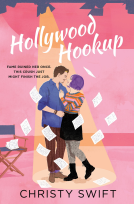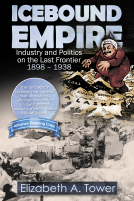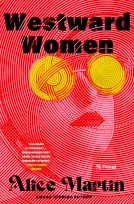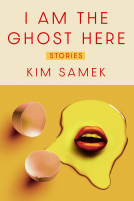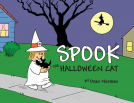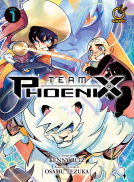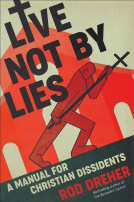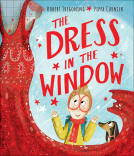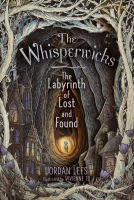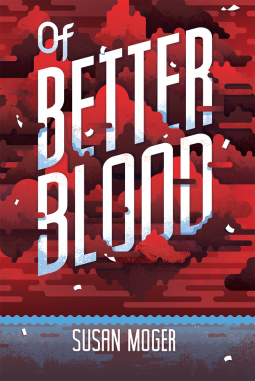
Of Better Blood
by Susan Moger
This title was previously available on NetGalley and is now archived.
Send NetGalley books directly to your Kindle or Kindle app
1
To read on a Kindle or Kindle app, please add kindle@netgalley.com as an approved email address to receive files in your Amazon account. Click here for step-by-step instructions.
2
Also find your Kindle email address within your Amazon account, and enter it here.
Pub Date Feb 01 2016 | Archive Date Feb 29 2016
Albert Whitman & Company | AW Teen
Description
Advance Praise
"An unsettling, adventurous debut which comes eerily close to difficult truth." —Elizabeth Wein, Printz Honor-winning author of Code Name Verity
Marketing Plan
Available Editions
| EDITION | Other Format |
| ISBN | 9780807547748 |
| PRICE | $16.99 (USD) |
Average rating from 20 members
Featured Reviews
 Erin H, Librarian
Erin H, Librarian
The topic of this book is equal parts fascinating and utterly horrifying. While many books have danced around the topic of Eugenics, I was so pleased that an author took this subject matter head on. Moger did an excellent job of mixing fact with fiction, providing readers with a vivid portrait of the “Betterment” movement during the 1920s and, ultimately, into World War II. Moger’s “Author’s Note” was also captivating as she provided not only additional information but an important reminder to all readers. In terms of the story itself, Moger did an excellent job in terms of developing her main characters. It was a pleasure to watch Rowan grow into such a fierce heroine and her friendship with Dorchy was both wildly entertaining and endearing. Speaking of Dorchy, I think she may be one of my all-time favorite characters in literature. A true spitfire if there ever was one and a friend that everyone would want by their side, she has a magnetism that is impossible to hide. I was also pleased that this novel didn’t fall into the romance trap. While initially there was a small part of me that was hoping for something between Tom and Rowan, in retrospect, I’m glad there wasn’t and the focus was placed squarely on the drama and the conflicting events happening on the island.
My only complaint lies in the storytelling itself and the development of secondary characters. This book started out so strong but for some reason it started to peter off towards the end coming across as choppy and disjointed and the flashbacks in the very beginning seemed oddly placed, particularly when they just stopped. I understand they were used as a mechanism to explain how Rowan ended up where she did, but I also wish that Moger would have kept them going in order to provide a better contrast between her life with Dr. Friedlander and Dr. Pynchon as well as her strained relationship with her estranged father and sister. They ended so abruptly that I felt I was losing something in Rowan’s history. I also think this attributed to the uneven reading experience. Additionally, the ending also seemed to come out of nowhere and felt rather anticlimactic. While tragedy does strike, the method of getting there seemed oddly placed and the resolution felt almost unsatisfying because I couldn't comprehend how exactly they got there. In terms of secondary characters, Moger did an exceptional job at the beginning. The Ogilvies were awful human beings but also thoroughly developed and as a reader I felt their impact on the story. Towards the end of the book, it felt as though Moger was losing steam. I recognized all the adults on the island as villains, but I felt their impact less when it should have been much, much more.
Despite these criticisms, I still enjoyed the book and I’m thrilled that Moger took on this topic and handled it well through her thoughtful characters like Rowan and Dorchy. It’s definitely a worthwhile addition to YA collections and I think an excellent source for teens that may be unaware of the Eugenics movement and the injustices that fed into World War II.
What an incredibly fascinating book. A great premise, fantastic characters, and such a unique time period for it all. Though it felt like two separate books, split neatly down the middle, I really enjoyed reading it. Rowan's world is so unlike what we are used to, it makes for a fantastic novel.
“I’ll see you on the midway.” It took me some time to get into this novel but once I understood what was happening, I really enjoyed it. The relationship with Dorchy and Rowan was what made it so special and over-the-top for me. As I read it, little things about their bond made me smile and as the book came to an end, I realized I was going to miss them. They were quirky, they got each other but what really did it for me was how they connected to each other. There were times when they were opposites, yet they belonged together and other times it felt as if they were fused together. It makes me smile now thinking about Rowan and Dorchy and their adventure together. Inside the novel, Dorchy played a great actress as she helps Rowan escape and I was laughing as the two of them head on down the road, Dorchy even fooling Rowan. This novel raised my emotions on many levels. The relationships, the subject matter itself and the drama, my feeling all over the place as I read along on Rowan’s journey. Reading about the committee comments, listening to them as they performed their evaluations and discovering about their past activity I was appalled that this group had the power to use their bias opinions on others. Unfair isn’t a strong enough word to describe their actions, they were irrational and demented. Ahhhh!
So are you an unfit? Are you part of an unfit family? In your family history, do you have crime, insanity, alcoholism, poverty, disease, and deformity? I could go on but I believe you understand where I am going with this. According to the New England Betterment Council your future of bearing children is slim if you are unfit. Sterilization is likely in your future with or without your consent if you scored low on their questionnaire. The year is 1914 and the Betterment Council believes in Unfit and Fit individuals. Rowan’s father and sister are known for their role in promoting the Fit individual. Rowan at the age of eleven contacted polio and her father got her the best treatment possible before he went off to war. Rowan prognosis is good, with her left leg needing more treatment but her sister Julia has other plans for her. Rowan’s new plans are to be a part of The Unfit Family. Playing the role of a cripple daughter, she becomes part of the traveling show. The novel transitions between 1917 when Rowan is hospitalized with polio and 1922 when she is performing with the show. I liked that Rowan believed in the words of her father and that becomes part of her positive attitude that keeps her spirits high. Reading about her life before the show we understand her family and the character of Rowan. They follow the same script day in and day out for the traveling show and Rowan get tired of playing the cripple. Her friendship with Dorchy throws this novel into second gear and she gives Rowan the boost that she needs. I did find it hard to stay with this novel but once I did, I really enjoyed.
Thank you NetGalley and Albert Whitman & Company for the copy of the novel in exchange for an honest review.
 Tanita D, Reviewer
Tanita D, Reviewer
Welcome to another session of Turning Pages!
Synopsis: One day she's leaping in the waves near the family's Paradise-by-the-Sea beach home, the fittest of the fit, dreaming of finishing Little Women and having a new best friend; the next moment her lower body is numb and unresponsive and she's so terrified that she can barely breathe, and cannot speak... polio in the 1920's stole many children's lives and liveliness just that quickly - but it stole didn't just steal Rowan Collier's legs, it stole her family - because the Colliers are charter members of the Betterment Council, an organization which encourage people to come in and fill out information about their family histories, their family trees, and see if they're "fit" to breed. Rowans father and sister have made their mark on society, writing eugenics articles and doing research regarding the burden of the feeble-minded and the unfit on American society. As Colliers are nothing but fit, Rowan now simply cannot be one. The disease steals her name, as her father abandons her to be taken into a hospital for orphaned children for care.
No name, no home, no hope -- Rowan withdraws into a silent bubble of shame and pain in the hospital until a caring physician comes along, who revives her spirit, and reminds her to take care of herself. She flourishes under his care, but her older sister, Julia takes even that away from her, in the name of sending her to a Betterment Society doctor... who pressures Rowan to be sterilized. Now, at sixteen, Rowan's not heard a word from her father in five, long lonely years. Her "livelihood" - a cot in a tent and at least two meals a day - is earned through work as an actress in a play. She lives the role of Ruthie the unfit cripple who drops the baby. At night, she is imprisoned with the group of the "unfit," locked away as a sideshow freak for the Betterment Council's traveling show. Dorchy, an orphan carney girl who is employed by the leaders of the freak show, thinks "fit to breed" is a crock. She's determined to use her con-woman skills to find her uncle, and restart her life on the Midway. With nowhere to go, and without the protection of her father's name, Rowan must escape from an uncomfortable situation with the show which rapidly becomes dreadful. When Rowan and Dorchy go on the lam, Dorchy revives her con-artist carney ways to get them money and leverage, but Rowan fears that the two girls are too different to go the same direction. They make a plan, a pact, each giving the other courage as needed. The two of them find themselves working as staff at an island summer camp in Maine. Camp Loup is a Betterment Society camp for orphaned unfit children -- but though the Betterment Council representative makes many promises, it quickly becomes apparent that this situation is worse than their last. An influenza has swept through, and many of the campers have died -- and still more are dying, of the 'flu, or of the cold-eyed doctor's so-called cure? Rowan and Dorchy must survive the camp's directors, the island, a storm long enough to escape, and let the world know the truth about what's going on at Camp Loup. At the last Rowan must stand - on her own two, polio-weakened two legs - against how she was raised, and decide how she wants to use what she knows to make a difference.
Observations: The information in this novel about eugenics, "fitness" and "betterment" movements throughout the United States through the 1920's-30's is a little explored region of pseudoscience, and it's usually only dug into in YA lit in reference to how it was practiced in Germany during the Jewish genocide. However, it's an American science, and it's something which informs the historical treatment of the poor and those with mental health issues in this country, and should shape how we respect those populations today. There are myriad German doctors who make appearances in the novel, but the author is unstinting in her revelations and lets no one off the hook - everyone who was of a privileged or upwardly mobile class was interested in eugenics, and everyone - even Civil Rights activist and N.A.A.C.P. founder W.E.B. DuBois - believed that Americans should be somehow better. DuBois wrote eloquently about "uplifting" the race, chiding African Americans to be aware of and rejecting of the unfit within their own race. Eugenics wasn't a German mistake, it wasn't merely the furtive study of some mad scientists in a Frankensteinian laboratory somewhere: this was mainstream supremacist ideology supported by thinkers such as Thomas Edison, Winston Churchill, Margaret Sanger, Linus Pauling, Marie Stopes, Robert Heinlein, HG Wells, Theodore Roosevelt, Nikola Tesla, Alexander Graham Bell, Woodrow Wilson, and George Bernard Shaw. It was virally infectious in a country which feared contagion from the lower classes, from other nations and the pollution of their ideas as well. There's plenty of history here to sink one's teeth into in this work of historical fiction, and readers may come away wanting to find out more.
With that in mind, the narrative aspect of this novel - of Rowan and Dorchy - is less arresting, as the girls' emotional resonance doesn't have as much time to develop. Still, Rowan's many falls and her dependence on her crutches, her weariness with her disabilities and her occasional despair rings all too true. Readers may find it unbelievable that there was no one to whom she could go for help. Still, Dorchy's strong friendship, and the risks and terrors of the girls' escape catches the heart, and will help readers identify more personally with the history and information that they read.
An author's note at the end of the novel emphasizes a strong takeaway message about ignorance and the abuse of power masquerading as "thought" and theory, "I wrote Of Better Blood to emphasize the danger of policies in which people are categorized, isolated, and eliminated for political ends," the author writes. This is a timely reminder in an election year, for sure.
Conclusion: A horror story told in matter-of-fact prose, the story of eugenics, "fitter families," and "better baby" contests is a history that led American medical health facilities to atrocities like the Tuskegee Experiment, forcibly sterilizing women in mental institutions and a wave of negative attitude and abuse against poor families with many children. It is the shame of medical history that we at times abused the poor and weak and those who needed help and support the most. This novel clearly shows what evil happens when good people do nothing, and will give a horrified shudder to a science-minded reader, and be a good jumping off place for a lot of discussion..
 Morris M, Reviewer
Morris M, Reviewer
There are not enough stars available on any rating site for me to properly convey how much I loved “Of Better Blood.” It is hands-down one of the best young adult historical novels I have ever read.
The very subject of eugenics is seldom so thoroughly explored in fiction, and it is quite an eye-opener to discover that the dystopias we fear have always existed in some way. Winners write the history books, so not many students are taught that the United States was treating many of its citizens in the exact same way as Hitler. The only difference? We did it earlier. Much earlier. Hopefully readers will take heed that those who do not remember the past are doomed to repeat it. Our world is not too far-removed from circling back around to the same type of situation with different people.
There are some major points about the characters that I loved. The first is the fact that the main characters are two girls without any superpowers or extraordinary abilities who manage to kick some serious ass. In fact, Rowan is a polio survivor with limited use of her legs. She isn’t someone who wants, or needs, pity. The book also keeps it all real. They couldn’t change the entire world on their own. Their job was to make some steps forward and lead others to do the same. It’s something we could all do a little bit more of.
I recommend “Of Better Blood” to absolutely anyone in 7th grade and up. There is no questionable content in terms of sex, and the profanity is mild.
 Ella S, Reviewer
Ella S, Reviewer
This was really good! I really liked Rowan's character and the story kept me on my toes the whole time.
Thank you to the Publisher for the review copy!
